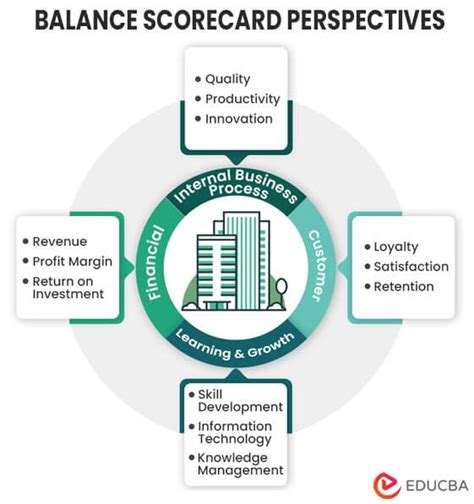Optimize energy: What’s your top dietary hack for sustained focus?

In today’s fast-paced world, maintaining sustained focus and optimal energy levels is crucial for productivity, creativity, and overall well-being. While many factors influence our mental acuity, diet stands out as a powerful, often underestimated tool. What we eat directly fuels our brain and body, dictating our ability to concentrate, remember, and problem-solve throughout the day. But with so much conflicting advice, what’s truly the most effective dietary hack for unlocking unwavering focus?
The Cornerstone: Blood Sugar Stability
One of the most impactful dietary strategies for sustained focus is managing your blood sugar levels. Wild fluctuations—spikes followed by crashes—can lead to energy dips, irritability, and a significant drop in concentration. Opting for foods that promote a steady release of glucose into the bloodstream is paramount. This means prioritizing complex carbohydrates over simple sugars, pairing carbs with protein and healthy fats, and ensuring adequate fiber intake.

Macronutrients: Fueling Your Brain Power
Each macronutrient plays a distinct role in cognitive function:
- Complex Carbohydrates: Found in whole grains, fruits, and vegetables, these provide a slow, steady stream of glucose, the brain’s primary fuel source. Unlike refined sugars, they prevent the dreaded “sugar crash.”
- Healthy Fats: Essential for brain health, fats like Omega-3s (from fatty fish, flaxseeds, walnuts) are integral to cell membranes and neurotransmitter function. Avocados, nuts, seeds, and olive oil also provide valuable healthy fats that promote satiety and sustained energy.
- Lean Proteins: Rich in amino acids, proteins are the building blocks for neurotransmitters like dopamine and norepinephrine, which are vital for alertness, motivation, and focus. Incorporate sources like chicken, fish, eggs, legumes, and tofu into your meals.
A balanced plate that combines these macronutrients ensures a steady supply of energy and the necessary components for optimal brain function.

Micronutrients for Mental Clarity
Beyond the macros, a host of vitamins and minerals are critical for cognitive performance:
- B Vitamins: Crucial for energy production and nerve function, B vitamins (especially B6, B9, B12) help convert food into fuel and synthesize neurotransmitters.
- Omega-3 Fatty Acids: Particularly DHA, these are fundamental for brain structure and function, reducing inflammation and supporting memory and learning.
- Antioxidants: Found in colorful fruits and vegetables, antioxidants protect brain cells from oxidative stress, which can impair cognitive function.
- Magnesium: Involved in over 300 biochemical reactions, magnesium supports nerve transmission, muscle function, and energy production, and can help reduce anxiety.
Hydration: The Unsung Hero of Focus
It sounds simple, but dehydration is a common culprit behind fatigue, headaches, and impaired cognitive function. Even mild dehydration can lead to a significant drop in concentration and mood. Make water your primary beverage throughout the day. Herbal teas and water-rich foods (like fruits and vegetables) also contribute to your fluid intake.

Strategic Snacking and Meal Timing
The timing and composition of your meals and snacks can profoundly impact your focus. Instead of large, heavy meals that divert blood flow to digestion and induce a “food coma,” consider smaller, more frequent meals. Opt for nutrient-dense snacks that combine protein, healthy fats, and fiber to maintain stable blood sugar and energy between main meals.

My Top Dietary Hack: The Power of Whole Foods and Smart Combinations
While all the above strategies are vital, my top dietary hack for sustained focus boils down to two principles: prioritizing whole, unprocessed foods and intelligently combining them. Instead of focusing on a single “superfood,” think about synergistic combinations that work together to stabilize blood sugar, provide sustained energy, and deliver essential brain nutrients.
For example:
- Start your day with a combination of complex carbs (oats), protein (nuts/seeds or protein powder), and healthy fats (chia seeds) in a smoothie or oatmeal.
- For lunch, a salad packed with leafy greens (antioxidants), lean protein (chicken/beans), avocado (healthy fats), and a colorful array of vegetables ensures a complete nutrient profile.
- When snacking, reach for an apple with almond butter, a handful of walnuts, or Greek yogurt with berries—each offering a mix of macros to prevent a blood sugar crash.
This approach moves beyond individual ingredients to create a diet that consistently supports cognitive function, ensuring your brain has the steady fuel it needs to perform at its peak.
Conclusion: Fuel Your Focus Intentionally
Optimizing energy and sustaining focus isn’t about deprivation or strict diets; it’s about intentional nourishment. By understanding how different foods impact your brain and body, you can make informed choices that empower you to stay sharp, alert, and productive. Embrace whole foods, balance your macronutrients, stay hydrated, and practice mindful eating. Your brain will thank you with unwavering focus and sustained energy throughout your day.










